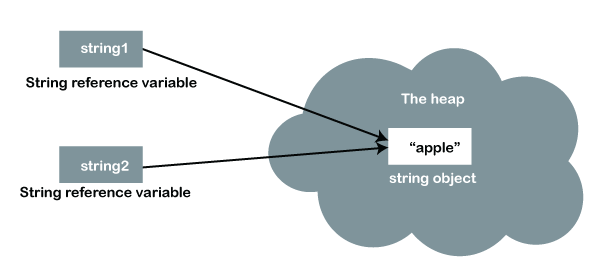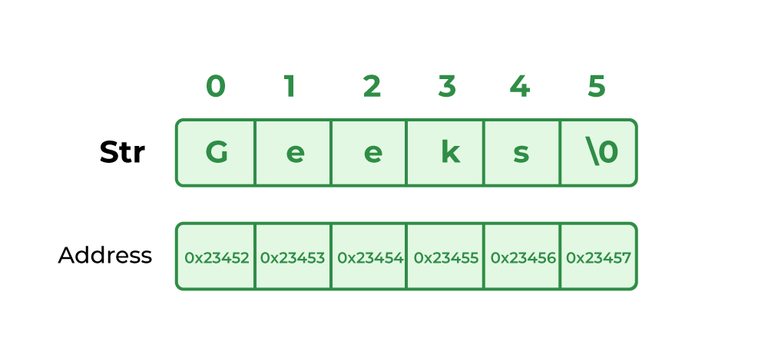Why Are Strings Immutable in Java? Exploring the Layout Decisions
Wiki Article
Immutable Strings: A Trick Part in Ensuring Information Consistency and Reliability
In the world of information management, the value of immutable strings can not be overstated. These imperishable series of personalities play a pivotal duty in upholding the integrity and precision of details within systems. By keeping a state of immutability, information consistency is ensured, promoting a foundation of integrity whereupon essential processes rely. The idea of unalterable strings goes beyond mere technicality; it is a linchpin in the complicated internet of information governance. As we check out the advantages, execution approaches, and practical applications of unalterable strings, a more clear picture emerges of their indispensable nature in safeguarding the digital landscape.The Concept of Unalterable Strings
Unalterable strings, an essential idea in shows, describe strings that can not be modified as soon as they are developed. In essence, as soon as a string worth is appointed, any kind of procedure that appears to customize the string really creates a new string. This immutability guarantees data consistency and integrity in applications, as it prevents unexpected adjustments to the initial data.
Benefits in Data Consistency

Information uniformity is vital in numerous aspects of software program advancement, consisting of data source monitoring, multi-threaded settings, and dispersed systems (Why are strings immutable in Java?). Immutable strings add significantly to achieving this consistency by preventing data corruption because of concurrent access. In circumstances where numerous procedures or strings interact with the same information simultaneously, immutable strings function as a protect against race conditions and synchronization issues
Furthermore, the immutability of strings simplifies debugging and screening processes. With unalterable strings, developers can rely on that when a string is established, it will stay unmodified, making it much easier to map the source of errors and making certain that test instances generate regular outcomes. This integrity in data handling ultimately causes extra durable and steady applications.

Carrying Out Immutable Strings
Making certain the immutability of strings requires a thoughtful strategy to their application in software development. As soon as a string item is produced, one key method is to design string courses in a means that protects against alterations. By making strings immutable, developers can boost information consistency and integrity in their applications.To execute unalterable strings successfully, developers need to favor developing brand-new string things as opposed to modifying existing ones. This technique guarantees that as soon as a string is appointed a website link worth, it can not be changed. Furthermore, any type of procedure that shows up to customize the string must create a new string with the wanted adjustments rather than modifying the original.
Furthermore, utilizing immutable strings can simplify concurrency monitoring in multi-threaded atmospheres. Considering that unalterable strings can not be changed after development, they can be securely shared amongst several threads without the danger of information corruption.
Duty in Reliability Guarantee
In software program development, the usage of unalterable strings plays an important duty in guaranteeing the dependability of data procedures. Unalterable strings, as soon as created, can not be modified, guaranteeing that the data they represent stays constant throughout the application's implementation. This immutability home supplies a degree of guarantee that the information being refined will not be accidentally transformed, leading to unforeseen outcomes or mistakes in the system.By integrating immutable strings into software application style, designers can improve the integrity of their applications by decreasing the threats linked with mutable information - Why are strings immutable in Java?. Unalterable strings aid in stopping information corruption or unexpected alterations, which can be especially essential when managing delicate info or when data integrity is extremely important
Furthermore, using unalterable strings simplifies simultaneous processing, as several strings can safely access and share string information without the threat of one thread modifying the material while another reads it. This aspect adds dramatically to the overall reliability of the software system, making sure constant and predictable actions in data taking care of operations.
Applications and System Combination
The smooth combination of immutable strings into numerous applications and systems is critical for ensuring robust data uniformity and dependability across varied technical atmospheres - Why are strings immutable in Java?. Immutable strings play an important role in enhancing the honesty of data exchanges and communications within facility software ecosystems. By integrating unalterable strings into applications, developers can alleviate the risks connected with data tampering, unapproved alterations, and unintentional modifications, therefore fortifying the check over here general protection position of the systemIn the context of system assimilation, unalterable strings function as a fundamental component for establishing protected interaction networks and assisting in smooth information transfers in between different components. Their unalterable nature makes sure that information sent between systems remains proven and unmodified, minimizing the probability of disparities or errors that could jeopardize the stability of the whole system. In addition, immutable strings can improve interoperability in between disparate systems by offering a standardized layout for data representation, allowing extra effective data processing and exchange procedures across interconnected platforms. By embracing immutable strings in applications and system assimilation procedures, organizations can strengthen their information facilities and maintain the reliability and consistency of their info properties.
Verdict
In verdict, immutable strings play a vital role in keeping data consistency and dependability in various applications and system combinations. By guaranteeing that strings can not be transformed when produced, the integrity of information is protected, lowering the danger of mistakes and incongruities. Executing unalterable strings can substantially enhance the reliability of systems, inevitably bring about more exact and reputable data handling.
Report this wiki page